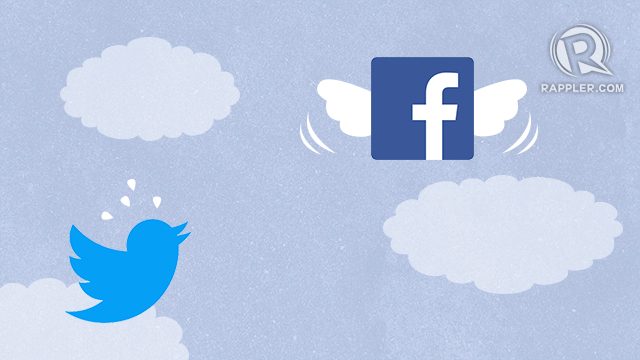SUMMARY
This is AI generated summarization, which may have errors. For context, always refer to the full article.

I have a twitter account, but I haven’t signed in for months on end. I have a Facebook account and would normally be logged in for several hours in a day.
I get emails from Twitter asking me to log back in and see all the wonderful changes they have put on the site. It did not get a rise out of me.
You see, the only time I look into Twitter is for professional reasons. As an editor who updates a page for a newspaper in Asia, I need to look at the latest tweet from US President Donald Trump.
For anyone who follows the news and is not buried under a rock, that has happened a lot.
A tweet from his private account, which has 25.3 million followers, is vital for any number of stories. One sample is a tweet where he attacked the U.S. media as an “enemy” of the American people, or when he went off against ‘fake news.’
Don’t believe the main stream (fake news) media.The White House is running VERY WELL. I inherited a MESS and am in the process of fixing it.
— Donald J. Trump (@realDonaldTrump) February 18, 2017
Then you have the assorted celebrities who would bang out their 140 characters of a sublime or idiotic rant about anything in particular.
Twitter was also spectacular during the tumultuous days of the Arab Spring, when demonstrators used it to communicate to the outside world.
Despite the increased attention Twitter is getting from Trump going off at three or seven in the morning, the share price of the microblogging site in New York is trading near the bottom of its 52-week range and shows no sign of staging a breakout, much less scale the highs it hit four years ago.
Twitter closed on Friday at $16.62 per share, in the bottom half of its 52-week trading range of $13.73 to $25.25. The stock is far from the time it was trading at an all-time top over $73 in 2013.
In my retirement account, 6 of the brokerages or research houses who rated Twitter split evenly.
Three graded the stock as a hold which is a tepid endorsement at best. The rest were down on the stock. One said it should be avoided, another said sell the stock, and the last downgraded it from a hold to reduce.
All of them pointed to Twitter’s “weak earnings growth” and this is tied directly to its monthly active users (MAU), which has been stagnant around 330-340 million for several months and quarters.
“The company has significantly underperformed when compared to the S&P 500 and the internet, software and services industry,” one research house said.
The contrast with Facebook, Twitter’s rival on social media, is startling. Five research houses/brokerage companies in my retirement account rated the stock a strong buy. The worst rating it got is a hold and that is misleading because one of those companies had just upgraded Facebook from reduce.
The price target of The Street, S&P and Credit Suisse for Facebook over the next year is $155, $165 and $170, respectively. Facebook closed on Friday, February 18, at $133.53.
Facebook’s biggest edge is in its MAUs, which stands at more than 1.5 billion – roughly one in 6 or 7 people in the planet.
“Facebook has considerable competitive advantages in social media and more in digital media,” one of the research houses said, adding the firm has become adept in tapping its user base and securing their engagement on its web site.
One bank put their ad revenue estimate for Facebook in the first quarter of 2017 increasing over 50% to nearly US$6.5 billion.
Another analyst put it this way: “More people stay on Facebook longer than they do on Twitter. If Twitter can figure out a way to get people to stay longer, then you will see it in the stock price. Until then, it will struggle.”
People who use Facebook would be on the site for 3-4 hours daily, acting like the town hall for your friends all around the world.
“Twitter is also an ego thing. You get off on all those people following you, but people engage on Facebook with their friends or relatives so they get to stay longer. Advertisers would rather have the longer hours,” one analyst explained. – Rappler.com
Rene Pastor is a journalist in the New York metropolitan area who writes about agriculture, politics, financial markets and regional security. He was, for many years, a senior commodities journalist for Reuters. He is known for his extensive knowledge of agriculture and the El Niño phenomenon and his views have been quoted in news reports.
Add a comment
How does this make you feel?
There are no comments yet. Add your comment to start the conversation.